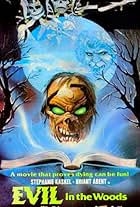THE BOXER AND THE BOMBSHELL (AKA TENDER HOOK) is a strange little film from Australia by writer/director Jonathan Ogilvie. Strange, because it has so many fine attributes - cinematography, use of enhancing black and white period film into semi-colored film to bridge the gap between centuries, some very fine imagery, and a cast of strong actors. Everything seems to be in place for this film, including the manner in which the film begins - giving the audience an insight as to where the coming story will take us - except that Ogilvie fails to create memorable characters about whom we care. In many ways this is like a vaudeville show with many disconnected acts that move past our eyes so quickly that each is easily forgotten. The movie tries very hard to be unique, but it only succeeds in being a transiently memorable recreation of Australia in the mob controlled 1920s.
Following WW I and in the wake of the tragedies suffered, a gang headed by boss McHeath (Hugo Weaving) is in the boxing scam, horse race fixing, and the drug and booze market. A Japanese beer maker Hackett (Kuni Hashimoto) imports beer for the black market and falls out of favor with McHeath. McHeath's two main men - Donnie (Tyler Coppin) and Ronnie (John Batchelor) obey McHeath's orders but have their own agendas. McHeath keeps a moll named Iris (Rose Byrne) who cheers McHeath on while snorting cocaine. This little uninteresting way of life finally comes alive with the entry of young promising boxer Art Walker (Matthew Le Nevez - an interesting and talented new face) who cares for his older brother who suffers form the stress of having served in the Great War. McHeath has a boxer he is training to fix matches, Alby (Luke Carroll), and McHeath brings on Art to be his sparing partner. At the first fight the public deride Alby because of his race and Alby is dismissed leaving Art to take focus. Iris is attracted to Art but also feels tied to McHeath: to get Art out of the picture Iris slips cocaine into Art's lemonade before a fight and Art of course loses the important fight. From there it is a competition among all the cast - McHeath wants control and attention (he sings songs in the ring before the fights! and controls the people around him by terror and murder. How Art manages to cope with being a fight fixer versus keeping with his principles of being a good boxer and how the gang deals with that forms the ending of the film - surprises from the initial footage that opened the film.
Hugo Weaving impresses more with his singing than with creating a villain, Rose Byrne is simply beautiful in her ill-defined role, and Matthew Le Nevez, though forced to struggle through a weak script, makes an impressive screen presence. What is lacking from this visually stunning film is a sensible and credible story. The parts are much greater than the whole.
Grady Harp



























